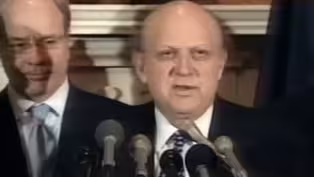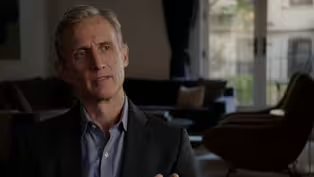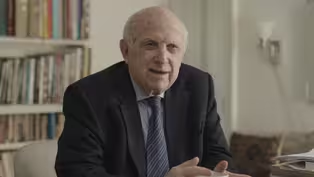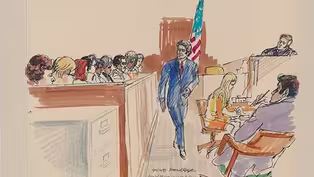
The history of the First Amendment
Clip: 9/22/2023 | 2m 48sVideo has Closed Captions
"We were making up, in a sense, First Amendment law as we went along," said Floyd Abrams.
Did you know that the Supreme Court didn't begin interpreting the First Amendment as law until 1919? "We were making up, in a sense, First Amendment law as we went along," said lawyer Floyd Abrams. Free speech as we know it today was established through national security cases and gains made during the civil rights movement.
Problems playing video? | Closed Captioning Feedback
Problems playing video? | Closed Captioning Feedback
Support for American Masters is provided by the Corporation for Public Broadcasting, AARP, Rosalind P. Walter Foundation, Judith and Burton Resnick, Blanche and Hayward Cirker Charitable Lead Annuity Trust, Koo...

The history of the First Amendment
Clip: 9/22/2023 | 2m 48sVideo has Closed Captions
Did you know that the Supreme Court didn't begin interpreting the First Amendment as law until 1919? "We were making up, in a sense, First Amendment law as we went along," said lawyer Floyd Abrams. Free speech as we know it today was established through national security cases and gains made during the civil rights movement.
Problems playing video? | Closed Captioning Feedback
How to Watch American Masters
American Masters is available to stream on pbs.org and the free PBS App, available on iPhone, Apple TV, Android TV, Android smartphones, Amazon Fire TV, Amazon Fire Tablet, Roku, Samsung Smart TV, and Vizio.
Buy Now
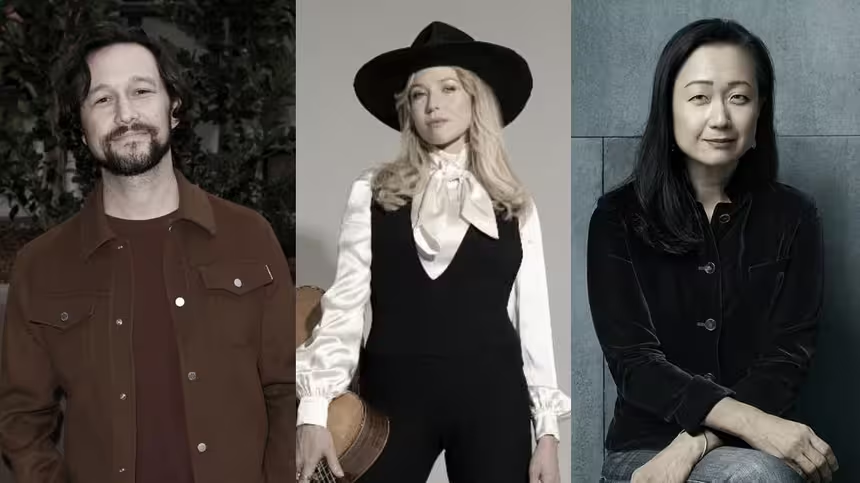
A front row seat to the creative process
How do today’s masters create their art? Each episode an artist reveals how they brought their creative work to life. Hear from artists across disciplines, like actor Joseph Gordon-Levitt, singer-songwriter Jewel, author Min Jin Lee, and more on our podcast "American Masters: Creative Spark."Providing Support for PBS.org
Learn Moreabout PBS online sponsorship- We were making up, in a sense, First Amendment law as we went along.
(gentle music) - You know, the First Amendment as we know it today is relatively recent, only 100 years old.
Most people think First Amendment, beginning of the Constitution.
Yes, it was there, but no Supreme Court cases interpreting it until 1919.
(gentle music) - With the First World War, and really the establishment of the First Amendment as we know it today, the most important First Amendment cases were often national security cases.
A conflict between individuals' right to speak with national security justifications offered by the government.
- So only 100 years.
And then in fact, it really only came together in the way that we understand it today in the 1960s and seventies.
- Freedom, freedom, freedom.
- The gains we've achieved in the Civil Rights Movement, we owe almost entirely to the First Amendment.
It was the ability to march, to speak, to engage in demonstrations.
(gentle music) - The Supreme Court, to the surprise of a lot of people, started saying that school children have First Amendment rights.
A kid that went to school with a black arm band protesting the war in Vietnam had a right to have it.
(gentle music) - Some of the really important cases in which we see the contemporary emergence of this conception of the First Amendment do critically involve the press.
- The great case was New York Times against Sullivan.
- Southern office holders wanted to enforce Jim Crow laws and wanted the northern press to shut up about it.
- [Reporter] In a supercharged atmosphere, the racial antagonism flared into violence.
- That's what these liable suits were designed to do, burden the press and get the New York Times and CBS News and other news organizations to stop covering the Civil Rights Movement.
And the court said, "No, we're gonna change the rules around libel, so that doesn't happen."
(gentle music) - [Lee] It was a political refashioning, one of the most exciting periods in modern history.
(gentle music)
The case that protected corporate spending in elections
Video has Closed Captions
Clip: 9/22/2023 | 2m 26s | Learn how the First Amendment protects independent spending by corporations in elections. (2m 26s)
Dan Abrams on defending his father's work on Citizens United
Video has Closed Captions
Clip: 9/22/2023 | 3m 40s | Dan Abrams discusses how he admires his father for working on cases he may not agree with. (3m 40s)
Video has Closed Captions
Preview: 9/22/2023 | 2m 20s | Follow the 50-year career of preeminent First Amendment attorney Floyd Abrams. (2m 20s)
When The New York Times published the Pentagon Papers
Video has Closed Captions
Clip: 9/22/2023 | 2m 22s | The New York Times sought the legal counsel after publishing the Pentagon Papers. (2m 22s)
Providing Support for PBS.org
Learn Moreabout PBS online sponsorshipSupport for PBS provided by:
Support for American Masters is provided by the Corporation for Public Broadcasting, AARP, Rosalind P. Walter Foundation, Judith and Burton Resnick, Blanche and Hayward Cirker Charitable Lead Annuity Trust, Koo...

